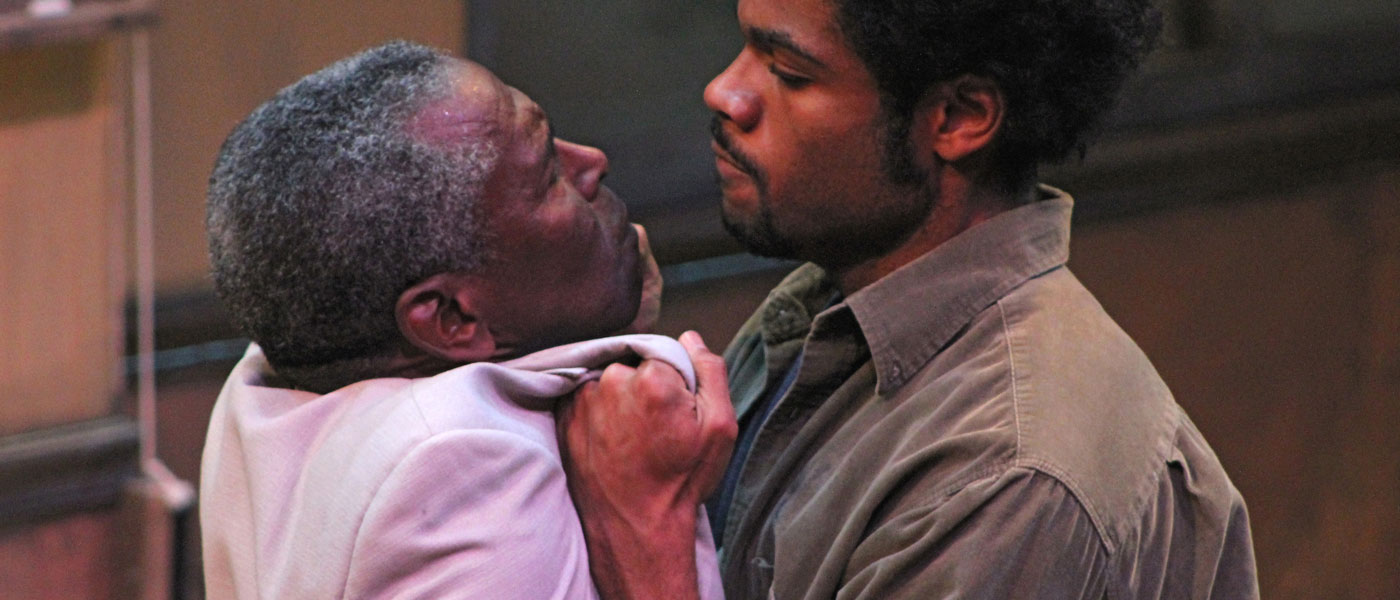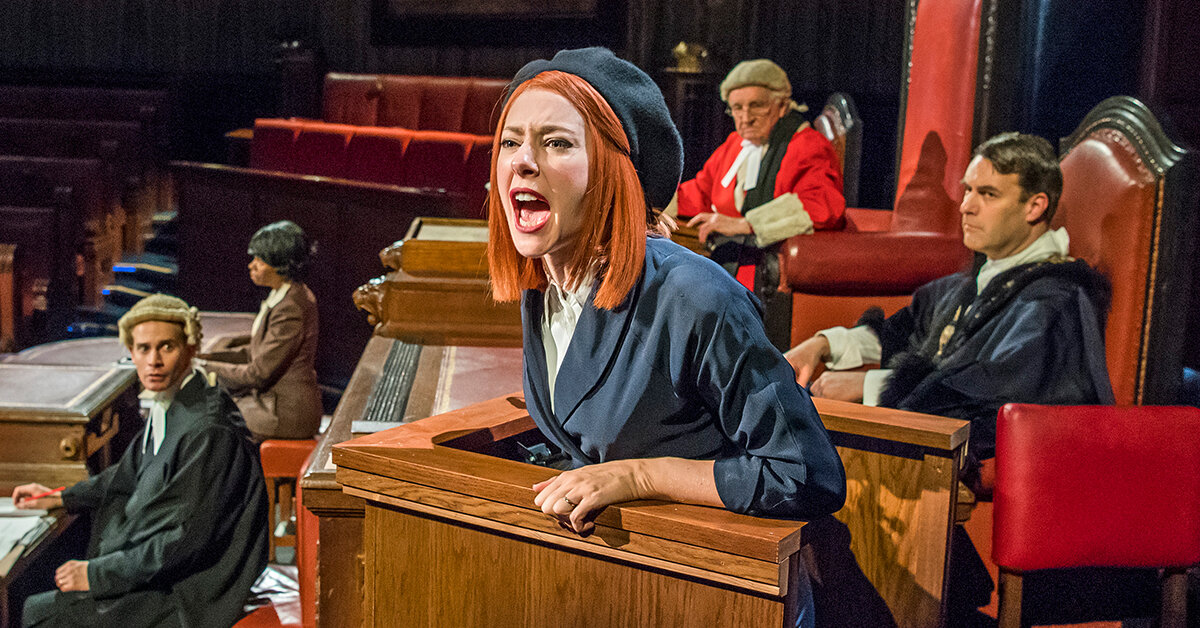
With his up-coming turn as Seth in August Wilson’s Joe Turner’s Come and Gone, actor Kim Sullivan will be the only performer to have appeared in each of American Stage Theater Company‘s ten American Century Cycle productions.
Stephanie Gularte, American Stage’s Producing Artistic Director: First of all, congratulations, Kim. What an exciting feat!
Kim Sullivan: Thank you. I am so proud and lucky to have been a part of this project at American Stage all of these years for a myriad of reasons, not the least of which is to carry on in the stead of Lloyd Richards, my first acting teacher and chief discoverer of August Wilson, but also for the late Claude Purdy who took a chance on me as Levee and pointed me in the right direction. You couldn’t ask for any better mentors.
Stephanie: A great deal of your career has been spent performing August Wilson’s work. How many times have you performed in a Wilson play?
Kim: By January 2017 when we open Joe Turner at American Stage, I will have performed in all ten plays at American Stage. I’ve performed The Piano Lesson a total of four times, as Wining Boy for American Stage, as Avery at Cleveland Playhouse, as Doaker at Virginia Stage and again as Wining Boy for the Gallery Player’s of Brooklyn, where I was just honored with the AUDELCO Award for Outstanding Supporting Actor. I’ve performed Seven Guitars thee times, at American Stage, St. Louis Black Rep. and the Arizona Theatre Company. I played the role of Canewell each time. I’ve also played Roosevelt Hicks in Radio Golf two times, at American Stage and Arena Stage, Washington D.C.
Stephanie: Impressive! Which characters have you found the most compelling to perform?
Kim: I’d have to say the most compelling roll to play for me was Solly Two Kings in Gem of the Ocean, the first Wilson at American Stage. It was so far out of my comfort zone as to be almost foreign. The most enjoyable was Wining Boy, as comfortable as an old pair of shoes.
Stephanie: Characters from the same family appear throughout the Century Cycle. Have any of the characters you’ve played been a part of the same family?
Kim: Stool Pigeon is Canewell all grown up and boy does he change, he’s been through quite a bit by the time we meet him in King Hedley II – very clever of August.
Stephanie: After all of this time, what continues to draw you to Wilson’s work?
Kim: I’m drawn to the challenge of portraying black love and struggle onstage, to bring life to these compelling and complicated people, rich in nuance and fire.
Stephanie: Okay, so, now that you’re about to complete the entire cycle, there must be some other August Wilson roles you’re still itching to play?
Kim: I’d love to give Harmon Wilkes a try. He’s a complicated animal, late to waking up his true power.
Stephanie: Not many actors can make the claim that they’ve performed in each of the ten Century Cycle plays, let alone performing them all with one company. What has it been like working with American Stage through the entire 10-play cycle?
Kim: It’s been quite the ride! I was always leery that at some point this train would stop or hop the tracks. We started off well enough with Gem of the Ocean, probably the second most difficult play in the canon to pull off because of its mysticism and mystery and its very violent ending. In fact, the first four productions at American Stage had a death in the end. To some it could seem this playwright writes plays about people always meeting a bad end, however that would be shortsighted. All of the plays have to be seen to truly measure August’s breadth and scope, and although violence is very much a part of our culture, of which I mean the violence we do to each other and the violence committed against us, it’s not the total picture.There’s also the love, the humor, the music and the wisdom . These are good stories and comparisons to Shakespeare aside, August reads more to me like O’Casey, or O’Neill, perhaps Behan or Shaw, hardy, accessible playwrights full of grit and angst. In short, it’s been a gas, I could start at the top and do them all again.
For more articles in the Century Cycle Series, click here.
To purchase a copy of August Wilson’s Joe Turner’s Come and Gone click here, and to learn more about licensing a production, click here.

Heathers The Musical: 10 Facts for 10 Years

Agatha Christie’s Witness for the Prosecution: Meet the Characters

